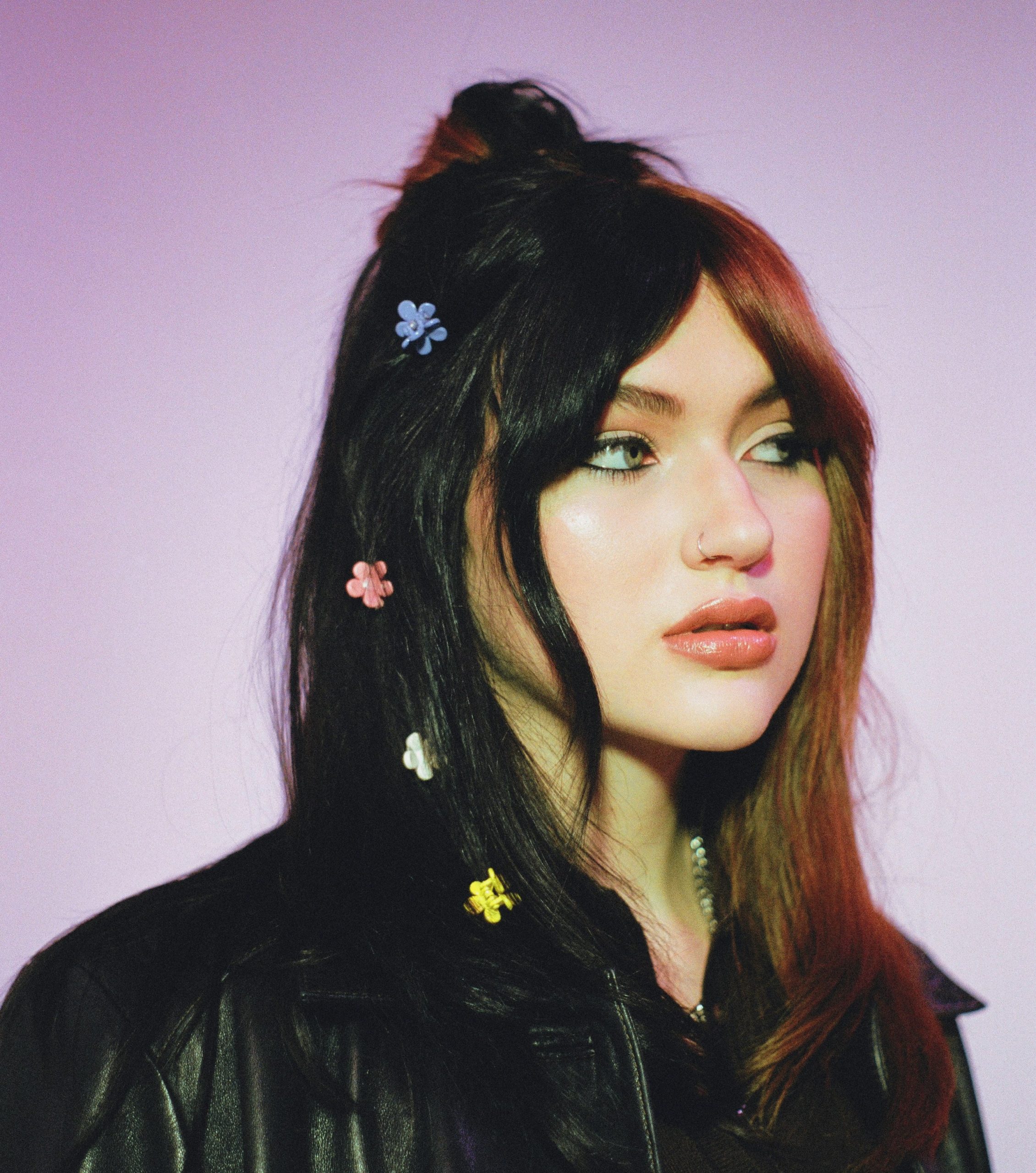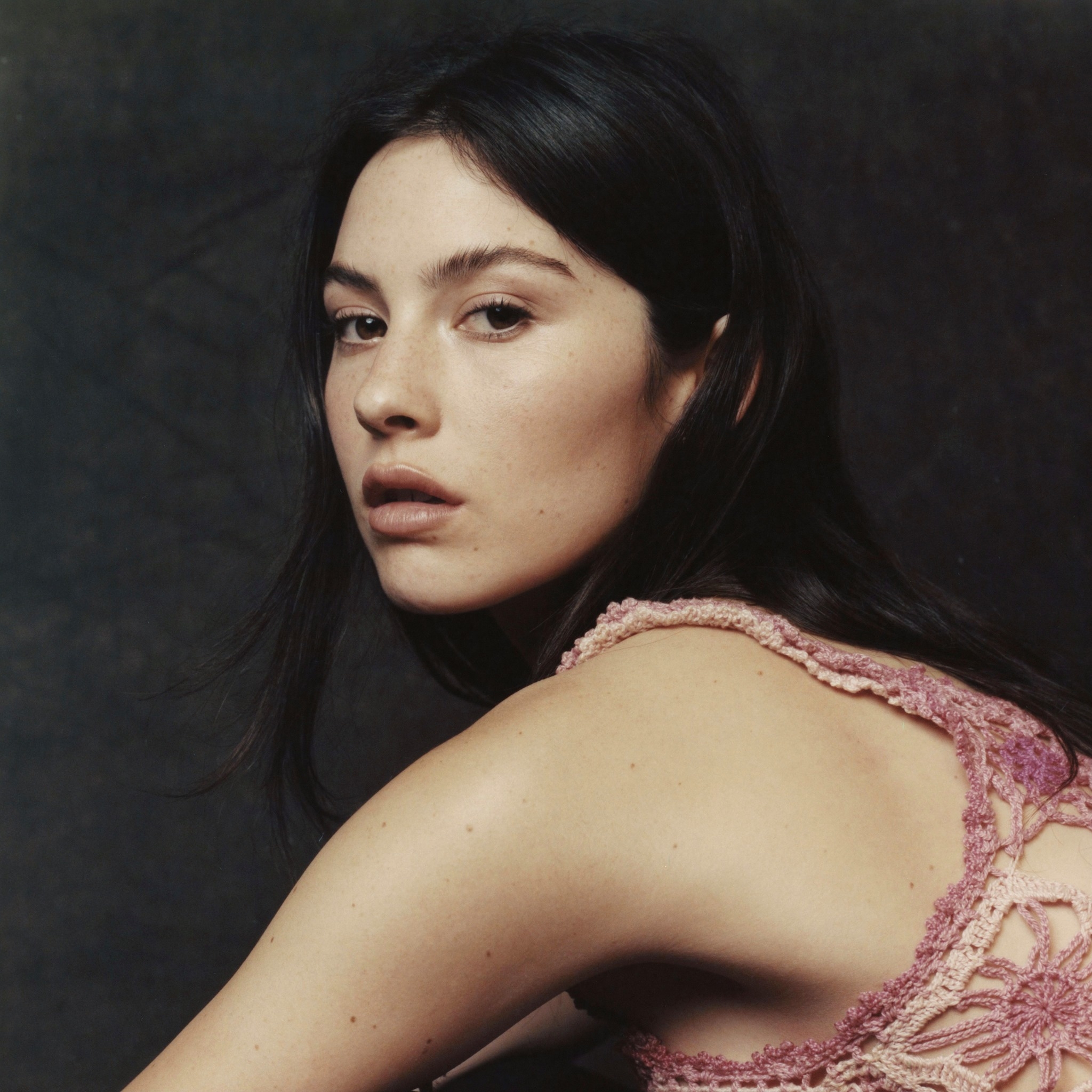Every few years, a major national publication will publish an overview of the Christian music industry. This week, Kelefa Sanneh has a good one in The New Yorker. Sanneh's history of Christian rock and pop begins way back in the 1950s, with Martin Luther King, Jr.'s advice-column exhortation that gospel and the devil's music should not mix. From there it moves at a measured pace into the present, highlighting the genre's origin in the '60s and '70s counterculture (the Larry Norman era), its softening and commercialization in the '80s and '90s (the Amy Grant era), and that post-Y2K moment when Christians were all over Warped Tour and mainstream rock radio (the Tooth & Nail Records era). As a church kid who grew up bumping Steven Curtis Chapman and the O.C. Supertones, I thought his analysis largely rang true. It's worth a read.
The text of Sanneh's essay does not tie it to any particular news peg, but it happens to coincide with the crowning of the biggest Christian pop album in a decade. Lauren Daigle, a 27-year-old from Lafayette, Louisiana, entered the Billboard 200 at #3 this week with Look Up Child, her second album. The project accumulated 115,000 equivalent album units and 103,000 in traditional sales, the biggest debut for a Christian album since Casting Crowns' Until The Whole World Hears sold 167,000 copies one week during the 2009 holiday season. Daigle also scored the largest sales week for a Christian album by a woman since You Light Up My Life -- Inspirational Songs moved 117,000 copies way back at the end of 1997.
So Look Up Child is a very big deal by Christian pop standards, but also nothing to sniff at in the context of pop music at large. Daigle's 115K start would be good enough to debut at #1 in many weeks. For context, her first-week numbers beat Lorde's Melodrama (109K) and Halsey's Hopeless Fountain Kingdom (106K) and fall just short of Kesha's Rainbow (117K) and Camila Cabello's Camila (119K), all of which debuted at #1. Look Up Child is a testament to the life-altering power of Jesus Christ, but also to the power of scheduling: Had she not been competing with the biggest Paul McCartney album in 36 years and second-week runoff from a surprise Eminem LP, Daigle could easily have the biggest album in America.
Sanneh's article emphasizes Christian pop's historical tendency toward easy listening soft-rock sounds, to the point that "Christian pop" became a recognizable sound. He also acknowledges the recurring pattern of artists creating a Christian alternative to whatever's popping in the mainstream, sometimes through craven mimicry. (Perhaps the best example of this phenomenon is former hip-hop group DC Talk's "Jesus Freak" functioning as the Christian "Smells Like Teen Spirit" -- though as someone who often wore a DC Talk T-shirt with "freak" across the front to middle school, I continue to insist that "Jesus Freak" is a classic song in its own right.) With those two factors in mind, perhaps it won't surprise you that Daigle has soared so high by imitating the biggest soft-rock singer in the world. From her smoky powerhouse vocals to the tastefully inoffensive arrangements they dominate, her record could easily be mistaken for Adele.
At this point we must acknowledge the blurry distinction between Christian pop, by which I mean pop songs with a distinctly Christian perspective, and worship music, songs that function as contemporary hymns. If Christian pop has become a codified sound, worship music is even narrower, which is annoying for multiple reasons. On a theological level, as someone who has maintained Christian faith into adulthood, it drives me nuts that many evangelicals have reduced the concept of "worship" to singing songs, when the New Testament broadly defines worship as a lifestyle. Consider Paul in Romans 12, urging Christians, "in view of God’s mercy, to offer your bodies as a living sacrifice, holy and pleasing to God -- this is your true and proper worship." But if the church's definition of worship is far too restrictive, so is its definition of worship music. I already ranted about the default style "echoing blithely and breathlessly into infinity" a few years back, and I remain perplexed about why "worship music" should be a rigidly defined musical style.
With that in mind, three years ago I would have scoffed at Daigle. How Can It Be, her 2015 debut album, was more of a straightforward worship album, full of power ballads designed to cross over not into the pop mainstream but Sunday services at your local megachurch. It mostly deployed her capable pipes on breathy verses and big, earnest choruses, backed by boilerplate "emotional" chord progressions and instrumental swells at the moments when white suburbanites are most likely to raise their hands skyward. Only rarely did she show glimpses of the fiery vocalist she can be. On "Here's My Heart," it was ironic that one of those flashes came when she sang, "You are light, breaking through!" -- a jolt of rawness amidst the sanitized doldrums.
Most pop music is formulaic, worship music exceedingly so, because formula is the shortest route to connecting with a mass audience. Daigle planted herself squarely where the market demanded and was richly rewarded for it; How Can It Be spent 11 weeks at #1 on Billboard's Top Christian Albums chart upon release and continues to be a mainstay in the top 10 three years later, even returning to #1 two weeks ago. This week it's #2, giving Daigle both of the top two Christian albums in America.
Look Up Child -- which, like How Can It Be, was released on the perfectly named Centricity Music -- is by no means an experimental album. Daigle's repertoire continues to be precision-engineered to appeal to a deeply conservative listener base. She would still sound right at home on my local Christian pop station, 104.9 The River, or its secular soft-rock equivalent, Sunny 95. But the album adjusts Daigle's formula in pleasing ways, putting an oomph in the backbeat, setting her free to really rip on the microphone, embracing minimalism at unexpected moments. If it's worship music, it's worship music that seems eager to interact with the world outside hermetic evangelical culture.
The album begins with "Still Rolling Stones," an upbeat, cinematically inclined pop-rocker buoyed by orchestral strings and a gospel choir. This is where the Adele resemblance is strongest -- even the title alludes to "Rolling In The Deep" -- and hey, if Adele is gonna be off the scene for a few more years, Daigle may as well come swinging into the vacuum. This particular tune is a redemption story common to Christian music, but it's presented more artfully than most. "I thought that I was too far gone, for everything I've done wrong," Daigle howls. Then she upends decades of established iconography around the phrase "rolling stones" by comparing Christ's resurrection to her own: "All at once I came alive/ This beating heart, these open eyes/ The grave let go/ The darkness should have known/ You're still rolling stones."
From there we get "Rescue" and "This Girl," two slow jams that keep the 25 vibes strong. "Your Wings" takes a surprising (and surprisingly not embarrassing) detour into reggae. Later, on the title track, the rhythm even flirts with reggaeton but, you know, leaves room for the Holy Spirit. Lead single "You Say" again evokes Adele, this time the tearful lament "Someone Like You" -- except in Daigle's case it's hopeful and inspirational, more like something Carrie Underwood would record, dealing not with the pain of heartbreak but the comfort of loving acceptance.
Even as the album levels out on its second side, it continues to surprise in subtle ways. "Rebel Heart" (as in "take my rebel heart and make it yours") spices up a straightforward piano ballad with a few jazzy chords that show off the rough edges of Daigle's voice. "Losing My Religion" (as in the common evangelical mantra of trading ritualism for a grace-based relationship with God) floats along with lounge-y guitar noodling, tastefully deploying its choir and strings when the beat drops out. "Inevitable" is just Daigle singing over a deftly played piano, never rising above conversational volume. If you didn't know it was the penultimate track on a Christian pop album you might believe it's a new Beyoncé song á la "Sandcastles." I kid you not, the harmonic interactions on the verses even remind me of Joanna Newsom.
Before I get carried away, remember, this album's second guiding light (after Jesus Christ, of course) is Adele, who conquered the world with the safest, most traditionalist music imaginable. Look Up Child only sounds adventurous compared to Daigle's debut, and it does not entirely abandon the worship music she made her name on. At the center of the tracklist are "Everything" and "Love Like This," two tunes built to become Sunday morning standards. The most popular worship songs have simple choruses that a whole room of mostly untalented singers can latch onto; it's easy to imagine a worship leader vamping through these ones indefinitely during the emotional climax of a service, building toward a grand finale in which the whole room sings the refrain a cappella. Deep cut "Remember" works the same way. And the album closes with the traditional hymn "Turn Your Eyes Upon Jesus," albeit with a bass-bumping skip in its step.
It's hard to know what Daigle's goal is. For artists who become so popular in the Christian music scene that people outside it start to learn their names, the question of a mainstream crossover always lingers. Many, such as rapper NF -- who debuted at #1 with Perception last year and subsequently scored a big hit with "Let You Down" -- pivot from "Christian music" by rebranding as "a Christian who makes music." Others pointedly reject the idea of becoming secular stars; Sanneh's article cites the popular worship-oriented band MercyMe, who opted not to leap at the chance to become the next Creed because "we’re called to be worship leaders."
Look Up Child could easily be a case of Daigle opening herself up to an audience beyond the faithful, but it also never strays from her core theological beliefs. There is no "Baby, Baby" here. There's no song that leaves you wondering whether it's addressed to Jesus or a romantic partner. Thematically, it's all decisively Christian. Sonically, it's just varied and sophisticated enough to transcend that world. Daigle, who has talked about rejecting checklist-based religion for something more personal, may have applied the same logic to her music. Maybe she just made the album she wanted to make -- a traditionalist album in the broader sense, but one that bucks some of the traditions that previously constrained her. If so, all I can say is amen.


CHART WATCH
With Egypt Station debuting atop the Billboard 200, Paul McCartney has his first #1 album in 36 years. According to Billboard, the album accumulated 153,000 equivalent album units, 147,000 of them via traditional sales, good for his eighth US chart-topper as a solo artist but first since 1982's Tug Of War. Weirdly, it's the first time he's debuted at #1. McCartney first hit #1 48 years ago with McCartney, his debut solo album. As you read about in this week's essay, after Eminem's Kamikaze at #2 comes the #3 debut of Look Up Child by Christian pop singer Lauren Daigle with a very healthy 115,000 equivalent album units -- the biggest week for a Christian album this year and the biggest since Billboard changed its formula to account for streaming in 2014. That said, streaming wasn't a huge driver of her success; 103,000 of those units derive from traditional sales. The last Christian album to sell more copies in a single week was Casting Crowns' Until The Whole World Hears with 167,000 during the 2009 holiday season. The last Christian album by a woman to sell that well was LeAnn Rimes' You Light Up My Life -- Inspirational Songs, which sold 117,000 copies one week around Christmas 1997. Next up at #4 with 79,000 units is Zoo, the last from the polarizing rapper Russ. Drake's Scorpion is at #5, and back up to #6 is Mac Miller's Swimming following the rapper's untimely death earlier this month. After Travis Scott at #7 and Post Malone at #8 come $uicideboy$ with the top 10's final debut, I Want To Die In New Orleans, on 46,000 units/31,000 sales. Ariana Grande's still lovely Sweetener rounds out the top 10. As for the Hot 100, Drake spends another week on top and breaks another record in the process. The tenth straight week at #1 for "In My Feelings" becomes Drake's 29th week at #1 this year, breaking Usher's record for the most weeks at #1 in a calendar year, originally set in 2004. Also, according to Billboard, Drake becomes the first solo artist (and second act overall, joining Boyz II Men) to spend 10 weeks at #1 with three separate songs. Drake did it with 2016's "One Dance" (10 weeks), this year's "God's Plan" (11 weeks), and now "In My Feelings" (10 weeks). As for Boyz II Men, it was 1992's "End Of The Road" (13 weeks), 1994's "I'll Make Love To You" (14 weeks), and 1995's "One Sweet Day" with Mariah Carey (a record-setting 16 weeks, equaled but not broken last year by "Despacito"). This is also Drake's 49th week at #1 overall. So despite a valiant challenge to Drake's hegemony, Maroon 5 and Cardi B's "Girls Like You" remains at #2. Cardi, Bad Bunny, and J Balvin's "I Like It" is again at #3, Post Malone's "Better Now" is back up to #4, and Juice WRLD's "Lucid Dreams" hops back to #5. Then at #6 comes the debut of Kanye West and Lil Pump's "I Love It," the most-streamed song in America by far. It's Kanye's 17th top-10 hit and Lil Pump's second following the #3-peaking "Gucci Gang" last year. The rest of the top 10: 6ix9ine and Nicki Minaj's "Fefe" at #7, Travis Scott (and Drake)'s "Sicko Mode" at #8, Tyga and Offset's "Taste" at #9, and Khalid and Normani's "Love Lies" at #10.POP FIVE
Avril Lavigne - "Head Above Water" I am all for an Avril Lavigne comeback, but why'd she have to go and make things so mind-numbingly simple? The Chainsmokers & Kelsea Ballerini - "This Feeling" Getting a country star on your electronic pop single is so hot right now. Khalid - "Better" Khalid received the key to the city of El Paso this week and released "Better" as a thank-you to fans. That's a nice gesture, but at this point the best way he could thank them is to stop releasing so much vanilla-flavored garbage and spend time coming up with another song as good as "Location." (For the record, the only truly great song he's released since then is his collaboration with Calvin Harris and Future that inspired me to get on his bandwagon in the first place, a decision I find myself reconsidering a lot these days.) Imagine Dragons - "Zero" This soundtrack one-off is no masterpiece, but jaunty, finger-snapping, aerobic new wave is way less aggravating than the usual Imagine Dragons sound. The little guitar breakdown and falsetto wailing near the end actually reminded me of Phoenix. Sophomore - "Sleepwalking" Sophomore is actress Abigail Breslin, the former Little Miss Sunshine child star who's managed to age into a grownup career in films like August: Osage County and TV shows like Scream Queens. (She's also in the upcoming Zombieland 2!) "Sleepwalking," her debut single, is way better than it has to be, a stylish take on down-the-middle synth-pop.NEWS IN BRIEF
- Actor Joe Alwyn has finally spoken about his relationship with Taylor Swift: “I think we have been successfully very private and that has now sunk in for people … but I really prefer to talk about work.” OK! [Billboard]
- The Pittsburgh Pirates held a moment of silence for Mac Miller at Monday's game. [TMZ]
- Ariana Grande and Justin Bieber's manager Scooter Braun sued Lady Gaga’s former manager Troy Carter for failing to pay back a $10M loan. [Billboard]
- Ed Sheeran and Dua Lipa will appear on Andrea Bocelli's first album of new material in 14 years. [Business Insider]
- Logic says the entire Wu-Tang Clan will appear on his Young Sinatra IV album. [Hip-Hop DX]
- Logic also released a video for "Everybody Dies." [YouTube]
- Carrie Underwood, Imagine Dragons, and Post Malone featuring Ty Dolls $ign will perform at the AMAs. [People]
- Kelly Clarkson's daytime talk show will debut on NBC stations in fall of 2019. [THR]
- The Chainsmokers and NGHTMRE shared a disturbing video for "Save Yourself." [YouTube]
HOLD ON, WE'RE GOING HOME
View this post on InstagramA post shared by Alena Garver💜aka Bug🐞 (@alenagarver_dance) on






